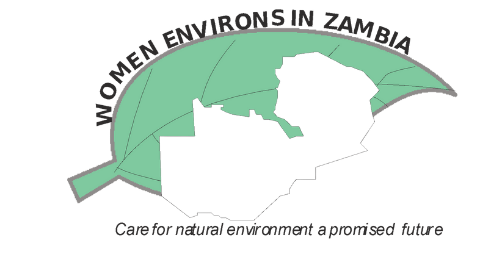Zambia stands at a critical juncture, confronting the escalating challenges of conventional agriculture while seeking sustainable and inclusive solutions for its food system. The Women Environs Zambia (WEZ) 1st Agroecology Conference, held on May 21-22, 2024, served as a pivotal forum to explore these issues and chart a new course for the nation’s agricultural future. The newly released WEZ 1st Agroecology Conference Report captures the essence of these discussions and presents a comprehensive roadmap for embracing agroecology in Zambia.
The Heart of Zambia’s Economy: Agriculture
Agriculture is the cornerstone of Zambia’s economy, employing over 60% of the population and covering millions of hectares of arable land. However, current agricultural practices are failing to meet the nation’s potential. The report highlights that Zambia’s maize yields are significantly lower than they could be, averaging only 0.8 to 1.72 tons per hectare compared to a potential of 10 to 12 tons per hectare.
The Unsustainable Path of Conventional Agriculture
The conference underscored the unsustainability of conventional agricultural practices. Intensive tillage, monoculture, and heavy reliance on chemical inputs have degraded soil health, reduced water retention, and led to lower productivity. These practices have also negatively impacted biodiversity and water quality, threatening the long-term viability of Zambia’s food system.
The Growing Threat of Climate Change
Climate change poses a significant threat to Zambia’s agriculture, exacerbating the vulnerabilities of an already stressed system. Erratic weather patterns and extreme events disrupt planting and harvesting cycles, further endangering food security, especially for small-scale farmers.
Social Injustices in the Food System
The conference highlighted deep-rooted social injustices within the food system, particularly the marginalization of women farmers. Issues such as unequal access to land, resources, and decision-making processes limit women’s ability to contribute effectively to agricultural development. WEZ’s representation at the conference emphasized the need to empower women by advocating for their land rights and access to credit and resources.
Agroecology: A Promising Alternative
Agroecology emerged as a beacon of hope during the conference. Defined as the application of ecological principles to agricultural systems, agroecology promotes biodiversity, soil health, and ecological resilience. The report details how practices like cover cropping, integrated pest management, and organic amendments can enhance productivity while preserving the environment.
Empowering Women Farmers
Central to the success of agroecology is the empowerment of women farmers. WEZ champions this cause, advocating for women’s land rights, promoting indigenous knowledge, and facilitating access to resources and training. The report showcases the critical role of women in driving sustainable agricultural practices and shaping food policies.
A Call to Action
The 1st Agroecology Conference in Zambia is a call to action for all stakeholders. Governments, research institutions, development organizations, and farmers must collaborate to transform Zambia’s food system. By embracing agroecology, supporting equitable policies, and fostering local solutions, Zambia can build a resilient and sustainable food future.
Key Takeaways for WEZ
- Embrace Agroecological Practices: Promote sustainable practices like composting, crop rotation, and integrated pest management.
- Advocate for Policy Change: Support policies that provide equitable access to land, seeds, and credit for women farmers.
- Promote Indigenous Knowledge and Seed Security: Encourage the use of indigenous seeds and traditional knowledge to preserve biodiversity.
- Capacity Building and Knowledge Sharing: Facilitate workshops and training for agroecological practices, enhancing farmer-to-farmer learning.
- Collaboration: Partner with organizations working on sustainable agriculture and women’s empowerment to strengthen the impact.
Conclusion
The WEZ 1st Agroecology Conference Report is a vital document for those committed to sustainable agriculture in Zambia. By embracing agroecology, advocating for women’s rights, and fostering collaborative efforts, WEZ aims to transform Zambia’s food system into one that is just, resilient, and sustainable.
For a detailed exploration of the conference proceedings and the roadmap ahead, download the full WEZ 1st Agroecology Conference Report here.
